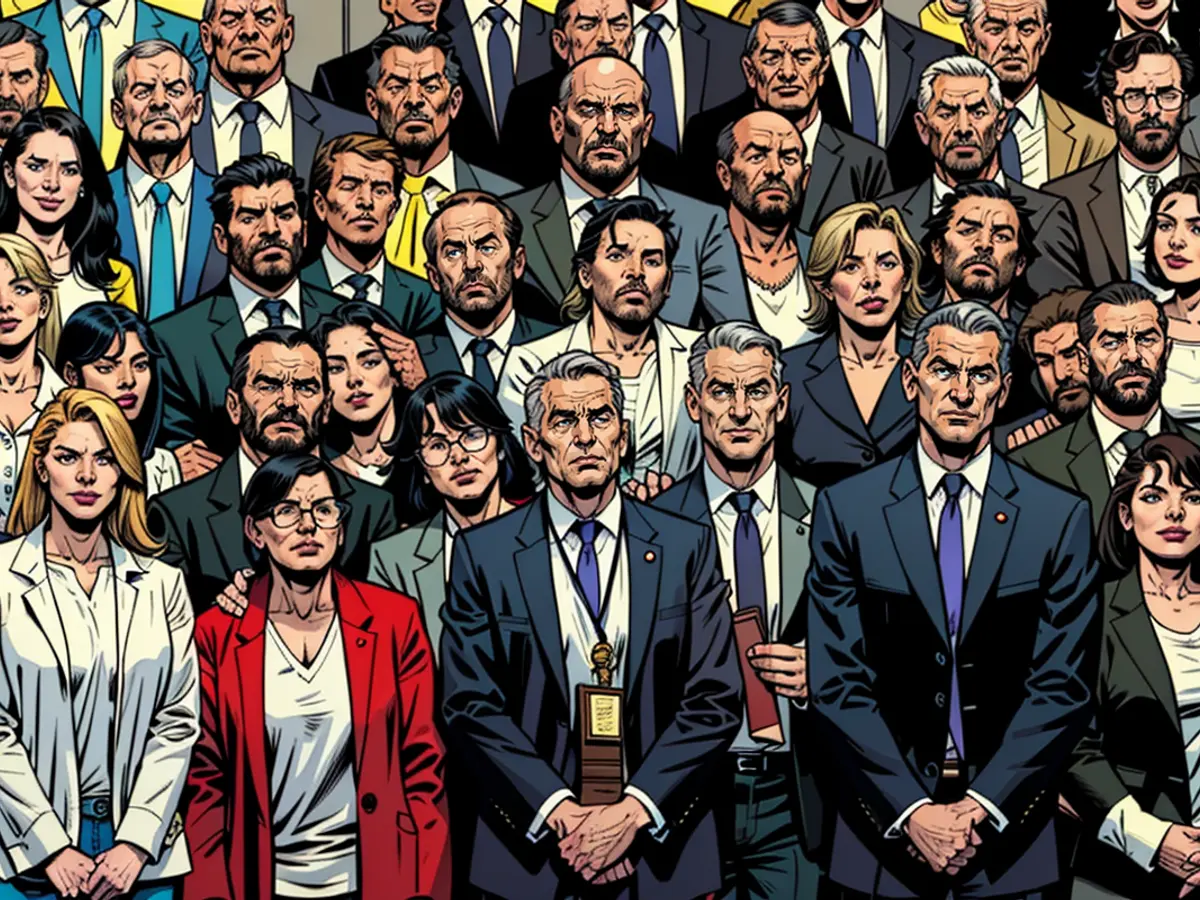Macron campaigns for parliamentary majority of "republican forces" in France
The President appealed to "all political forces that recognize the republican institutions, the rule of law (...) and a pro-European position," to engage in a dialogue to find a majority. The French have decided for a "republican front," this must now be concretized, Macron emphasized.
The "republican front" in France so far meant that left and right forces came together to prevent a right-wing populist election victory, for instance, through a tactical withdrawal of candidates.
"In light of these principles, I will decide on the appointment of the Prime Minister," Macron wrote. Thus, he indirectly rejected the Left Coalition, which claims the right to name a candidate - without having agreed on a name yet.
The current government will remain in office for the time being, Macron confirmed. The letter was published as Macron had already traveled to Washington for the NATO summit.
It was expected that Macron would try to form a large coalition of the center with moderate forces from the left and right blocs. However, all potential participants seem to be at odds with each other at the moment.
Interior Minister Gerald Darmanin and a group of deputies spoke similarly to Macron in favor of a broad coalition. The newly elected leader of the conservative Republicans, Laurent Wauquiez, however, rejected this immediately. And the leftist New People's Front, in which the rejected left-populists form the largest group, is still holding together.
Coalition negotiations like in Germany are currently unthinkable in France, as in many cases, the membership of individual deputies has not even been clarified yet.
The fog should clear up by July 18th, after which deputies can form factions, which, however, do not necessarily correspond to the alliances before the election. They only need to find at least 15 deputies. The New People's Front is expected to split into several factions.
The Left Coalition also wants to propose a candidate for the position of Prime Minister by Thursday of the coming week.
Meanwhile, the newly elected deputies of the right-wing populist Rassemblement National (RN) met for the first time in the National Assembly. Marine Le Pen was re-elected as the Fraktionschefin.
Her faction includes at least 123 deputies, significantly more than the 88 before the dissolution of the National Assembly.
Le Pen criticized the tactical withdrawal of many candidates from other camps once again, which prevented the victory of many RN candidates in the second round of voting on Sunday. "There were maneuvers that deprived us of an absolute majority," she said.
She emphasized that the RN received the most votes. It is a consequence of the majority voting system in France that the RN, with ten million fewer votes, has fewer deputies than the Left Coalition, which received seven million votes.
RN party leader Jordan Bardella called on his party's deputies to behave seriously. They must "absolutely behave impeccably in their constituencies and in the media," he emphasized. All male deputies wore suits and ties, while all female deputies wore costumes or pantsuits on the group photo.
In the past few days, several RN (National Rally) candidates have drawn attention through provocative statements. For instance, the newly elected deputy Daniel Grenon accused the former Education Minister Najat Vallaud-Belkacem of a "loyalty conflict" because she also holds Moroccan citizenship. He is not supposed to belong to the RN (National Rally) faction.
Macron called for the parliamentary elections after the success of the right-wing populists in the European elections on June 9. The outcome was the formation of three political blocs, each failing to achieve an absolute majority and whose programs are hardly compatible with each other.
- Gérald Darmanin, supporting Macron's call for a broad coalition, advocated for the Union of the Center with moderate forces from both the left and right blocs.
- Despite the appeal from Macron, the newly elected leader of the conservative Republicans, Laurent Wauquiez, immediately rejected the idea of a coalition.
- The Left Coalition, which claims the right to name a candidate for the Prime Minister, is yet to agree on a name, but they plan to propose one by the coming week.
- At the NATO summit, Emmanuel Macron was expected to form a large coalition of the center with moderate forces from the left and right blocs, but all potential participants appear to be at odds with each other at the moment.







